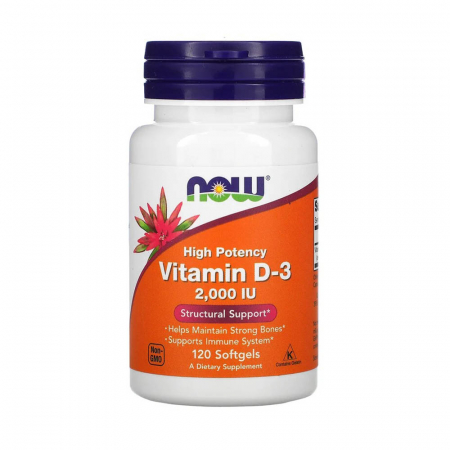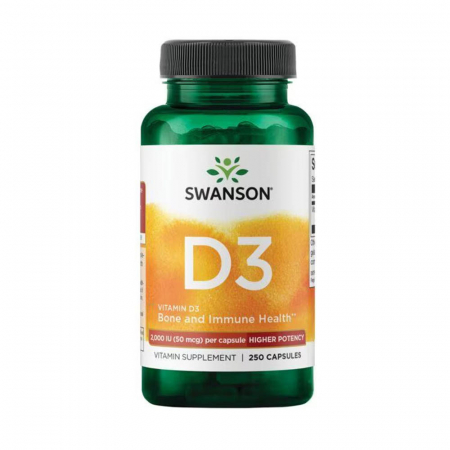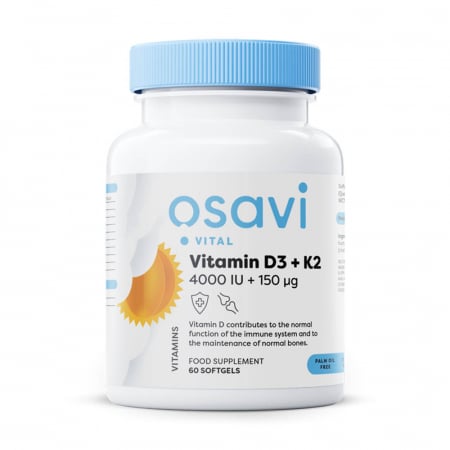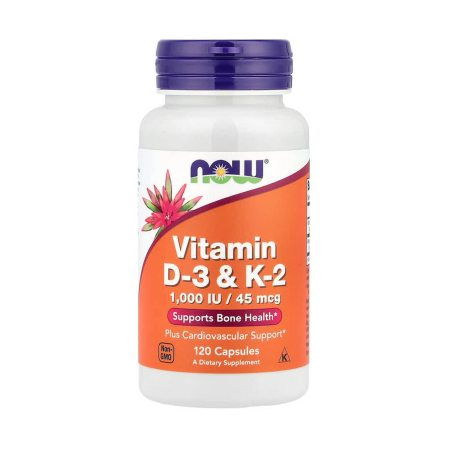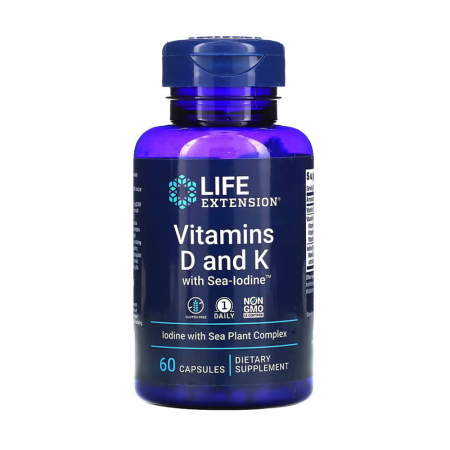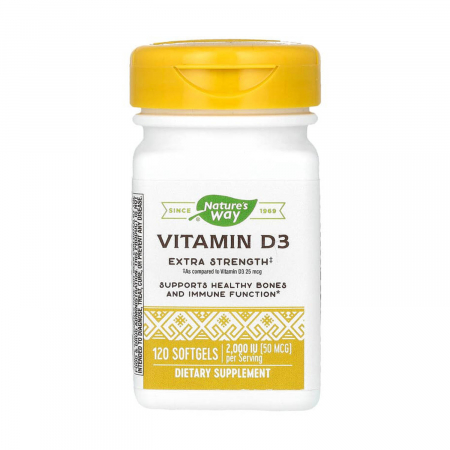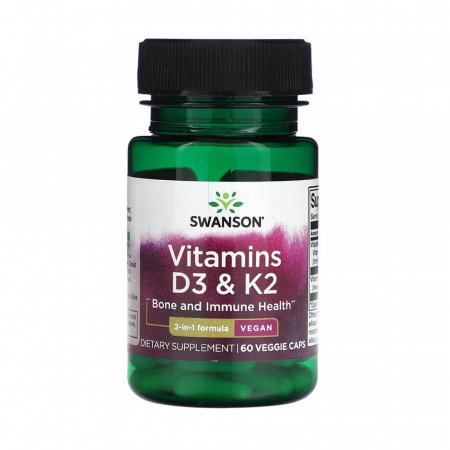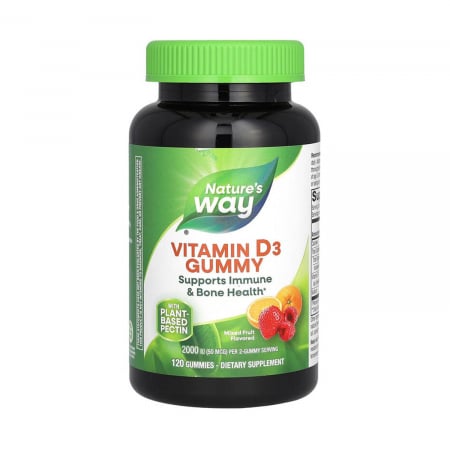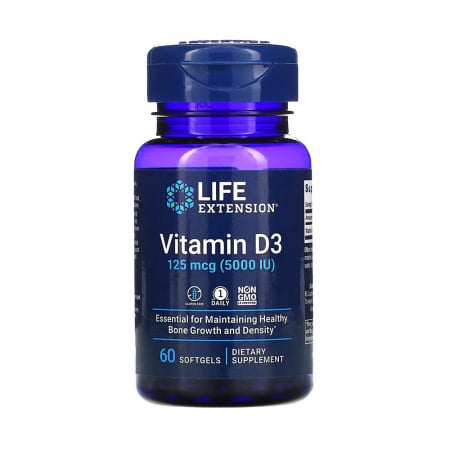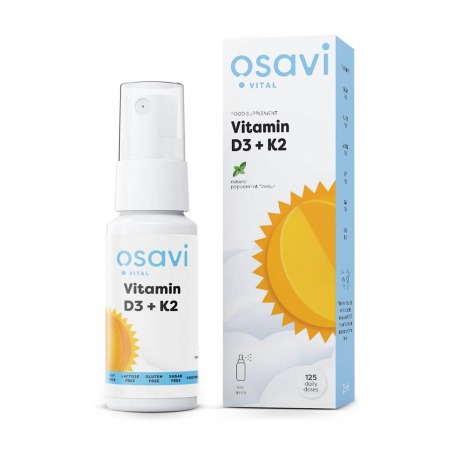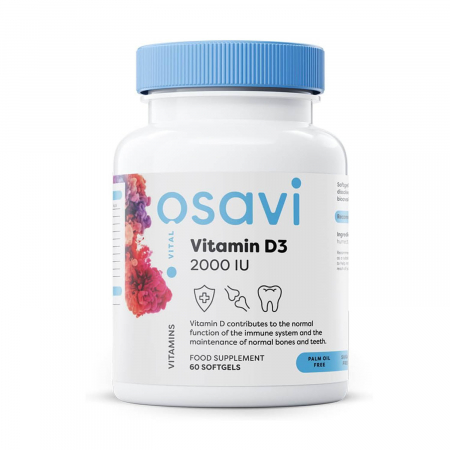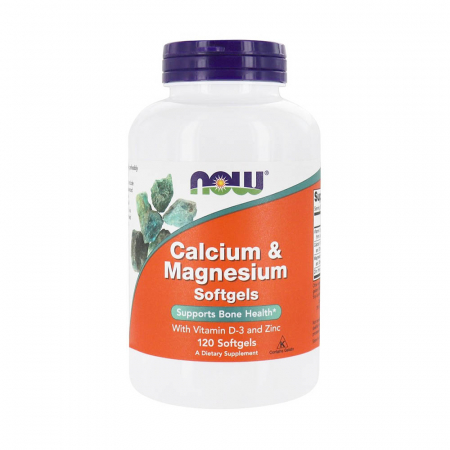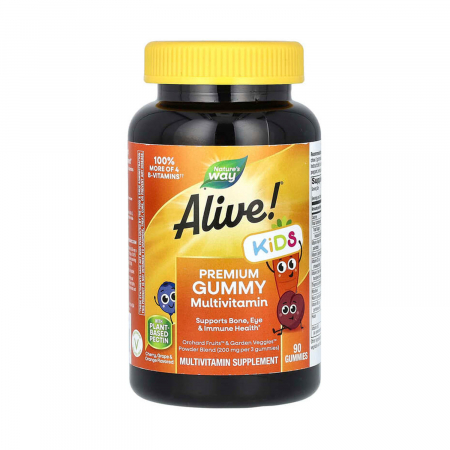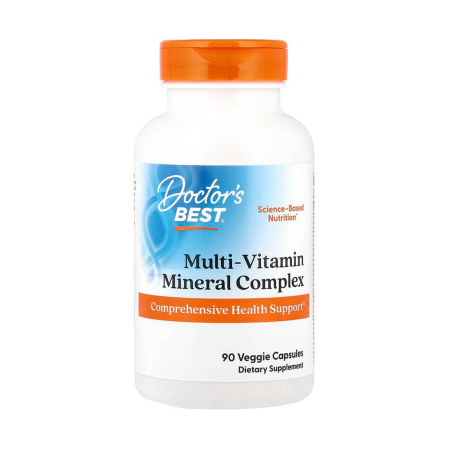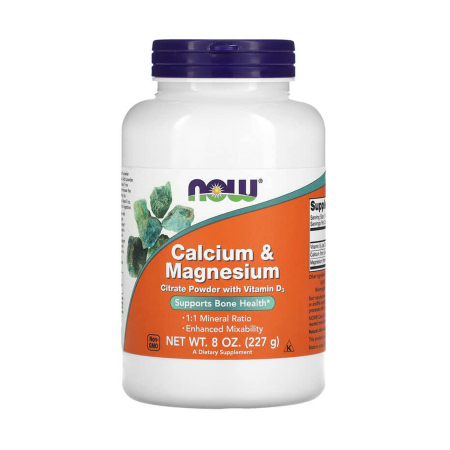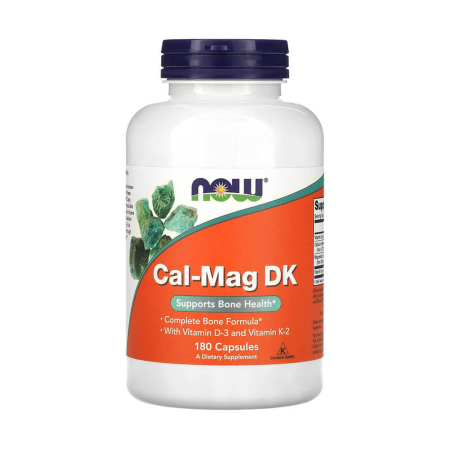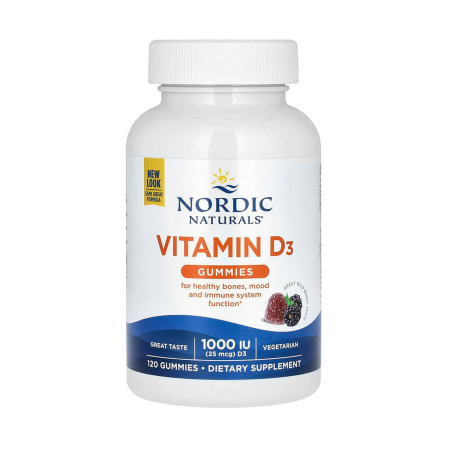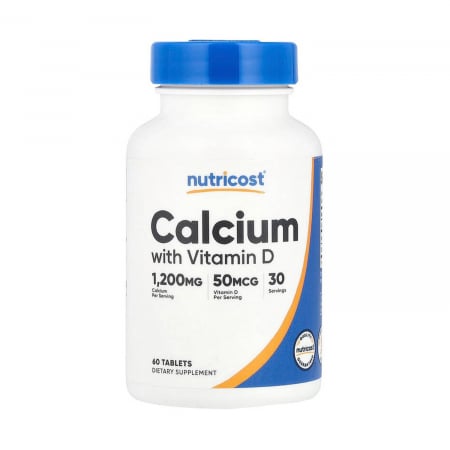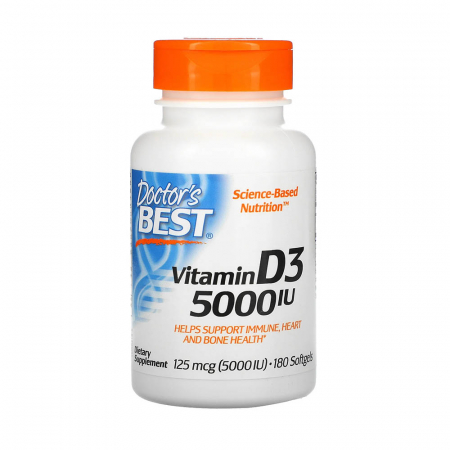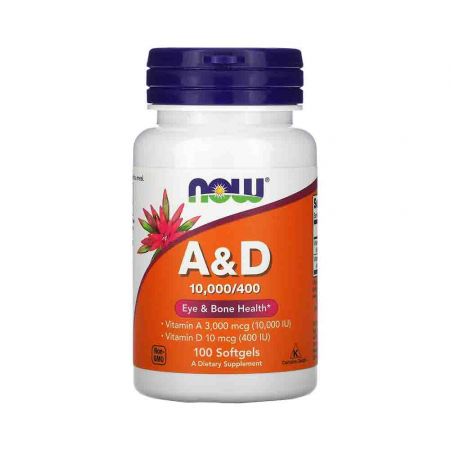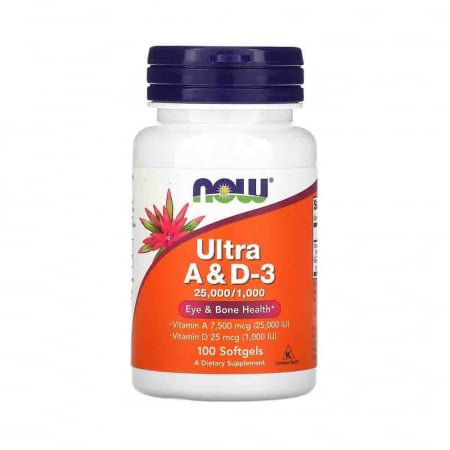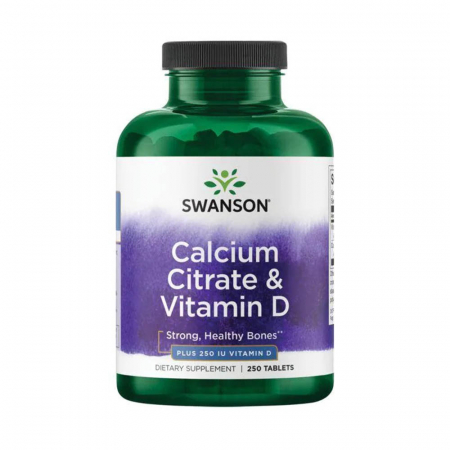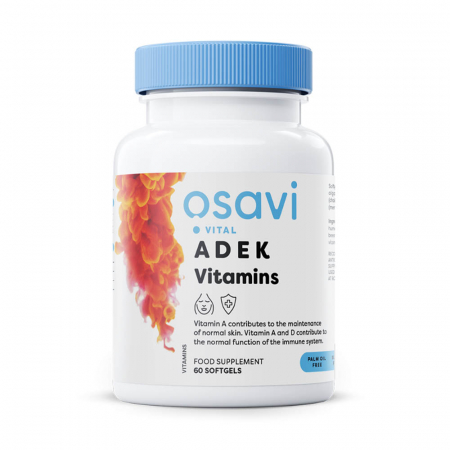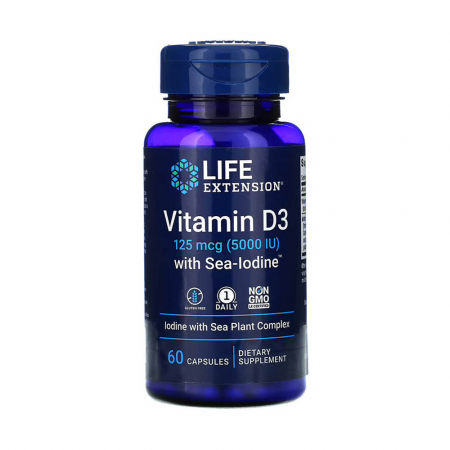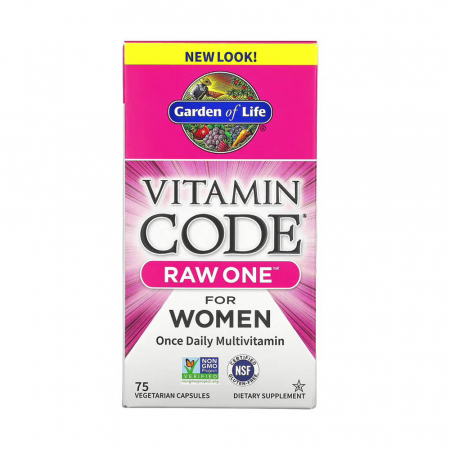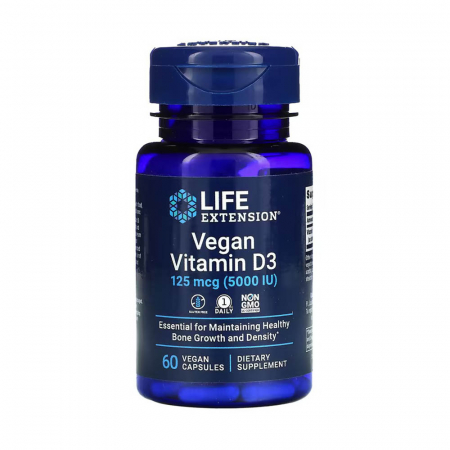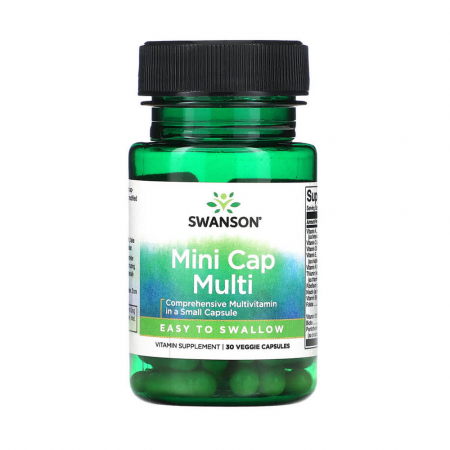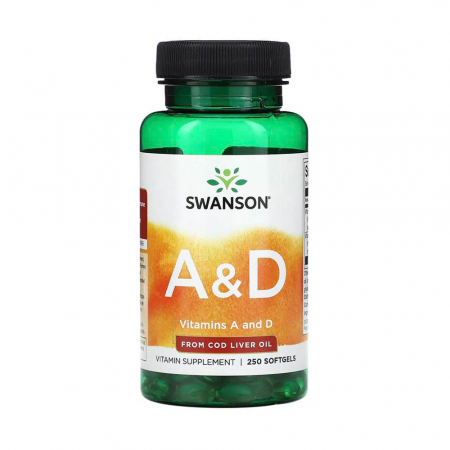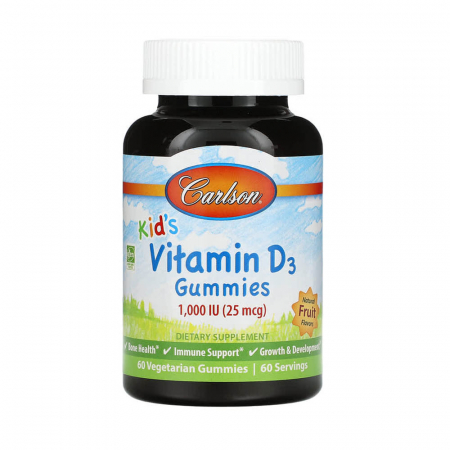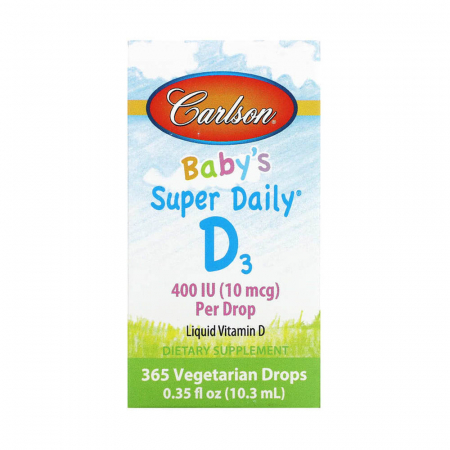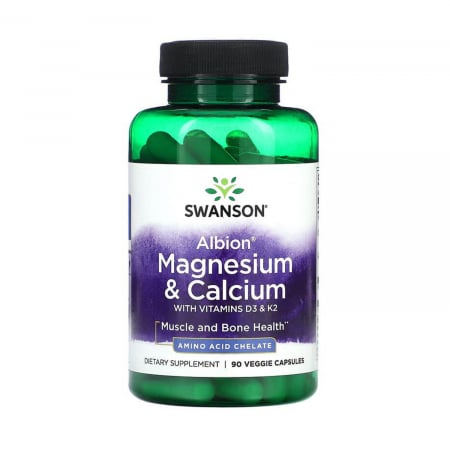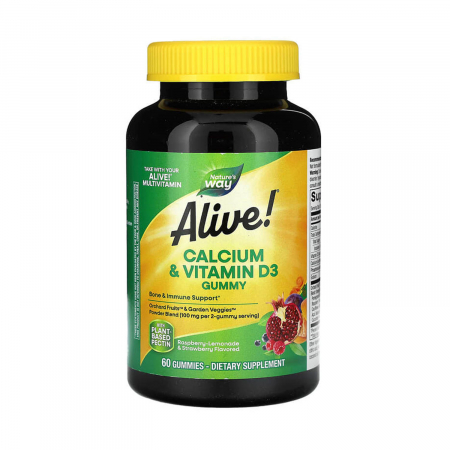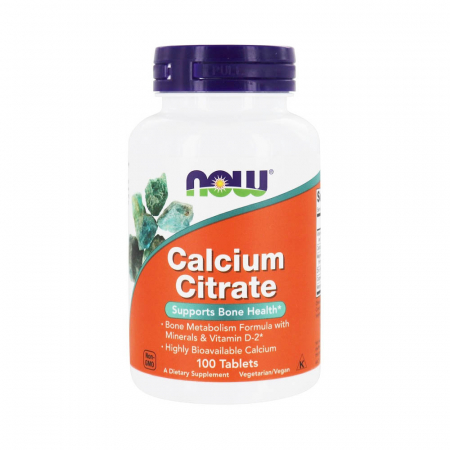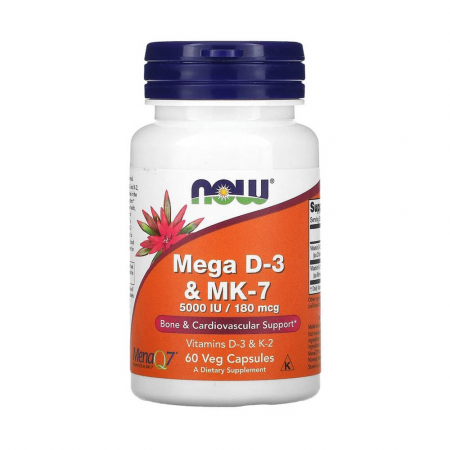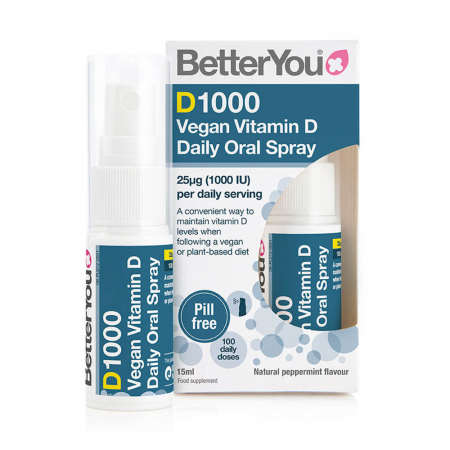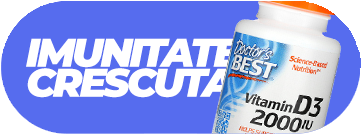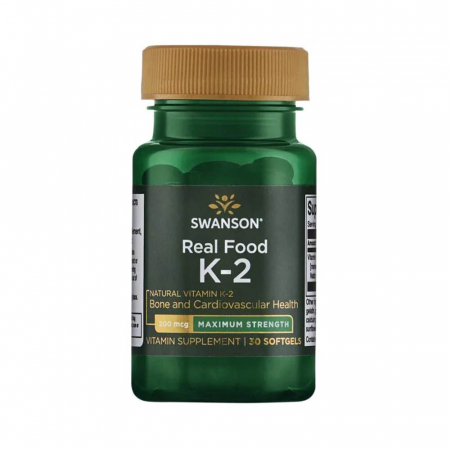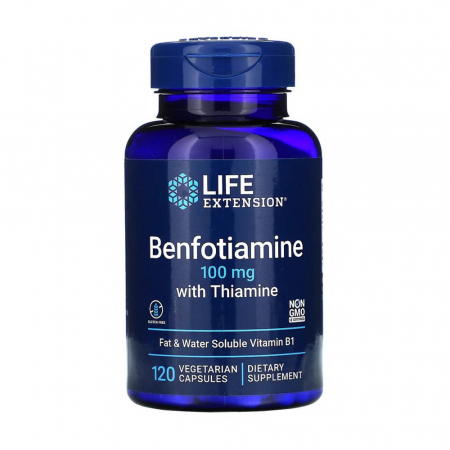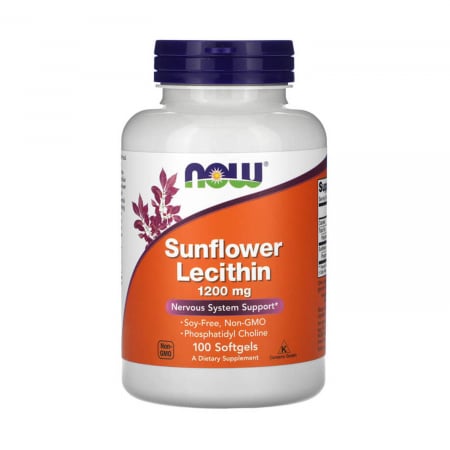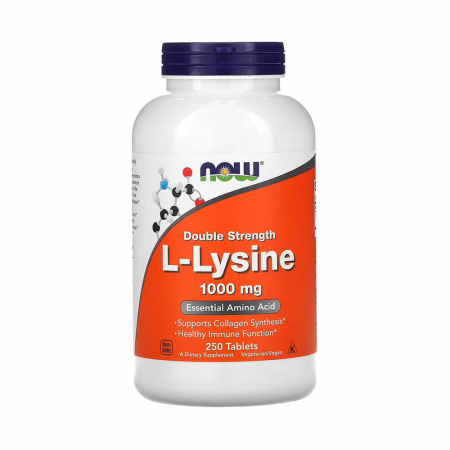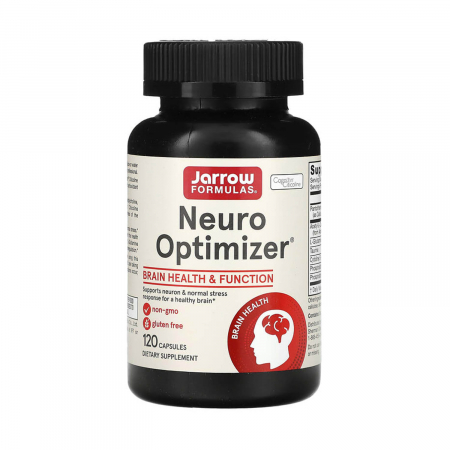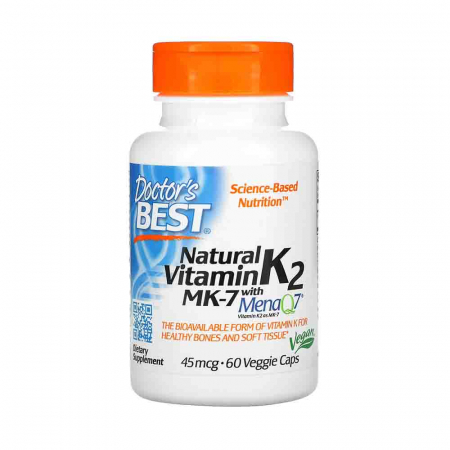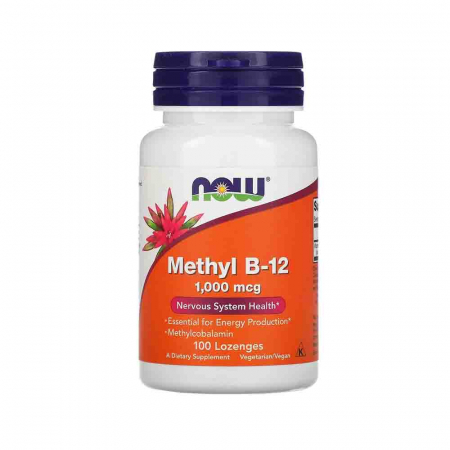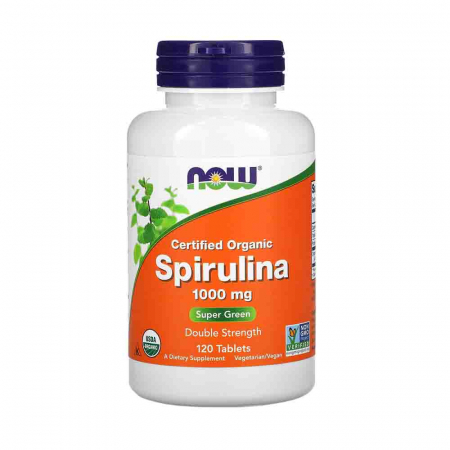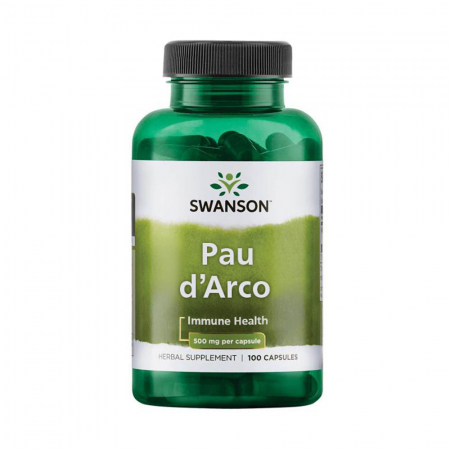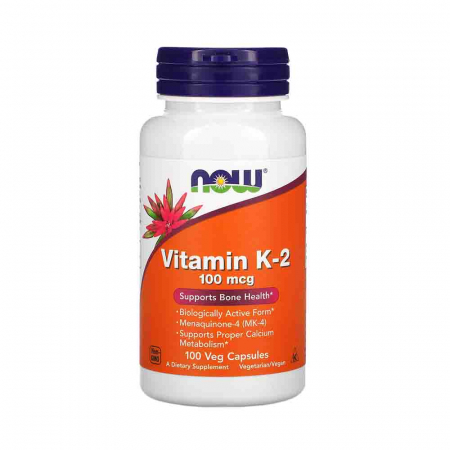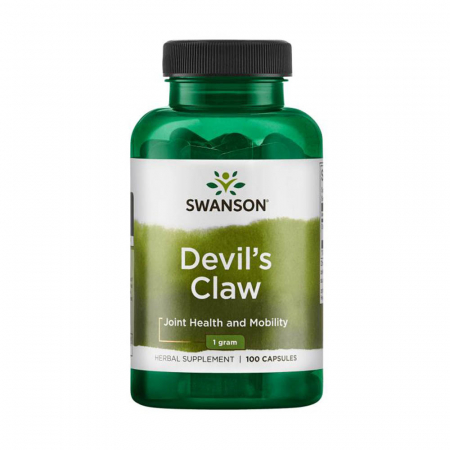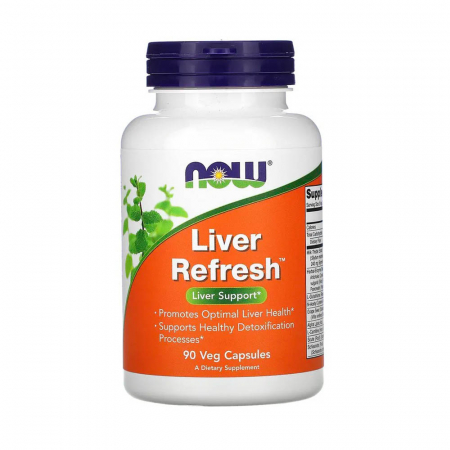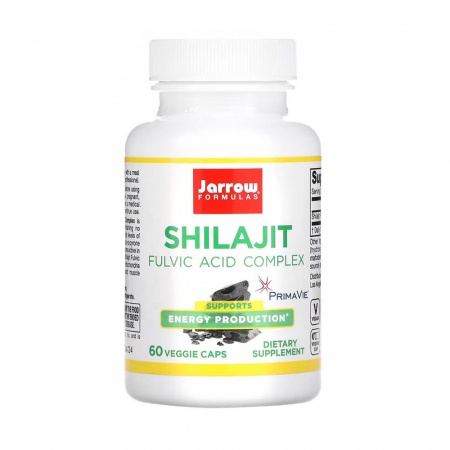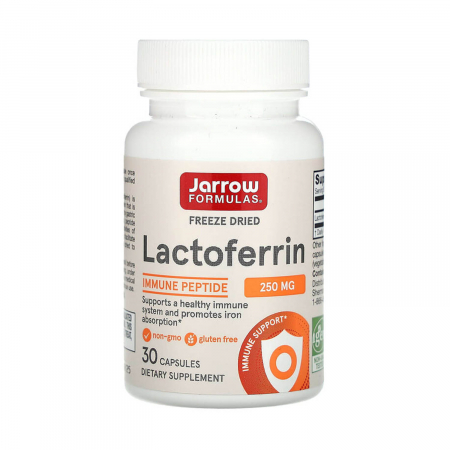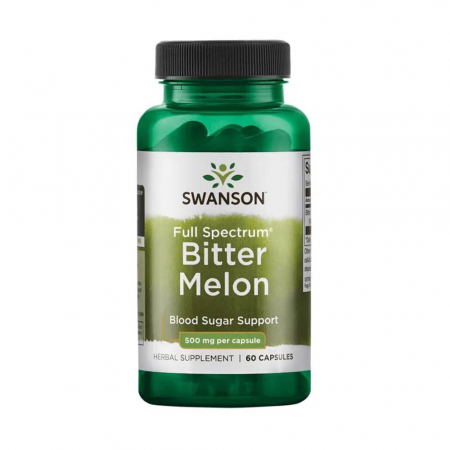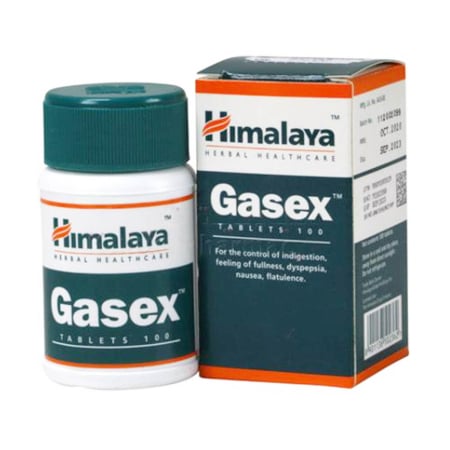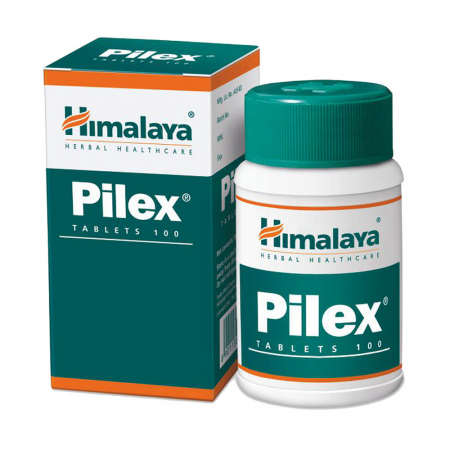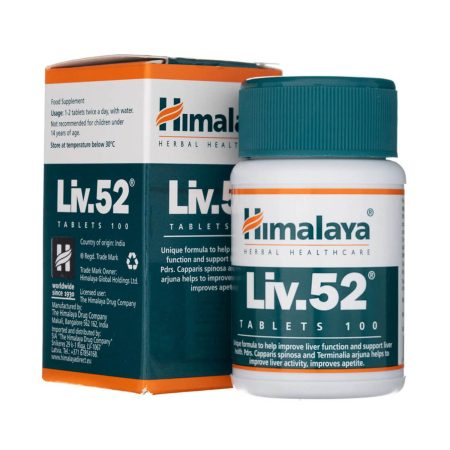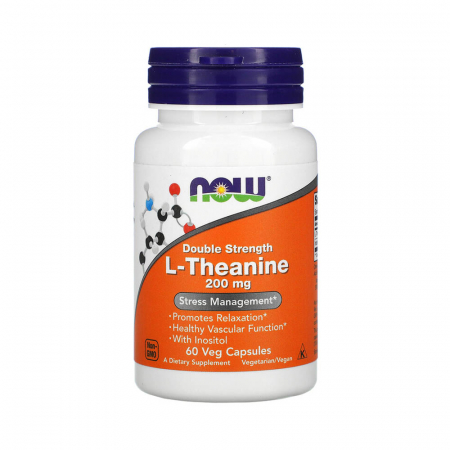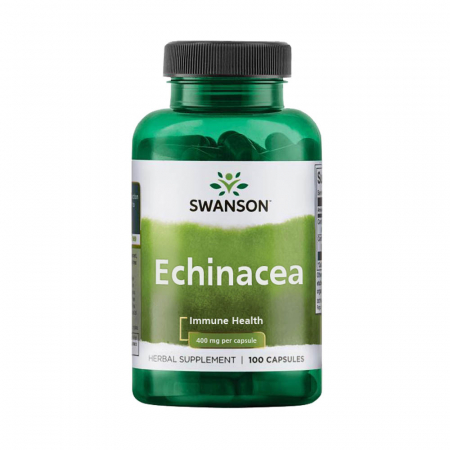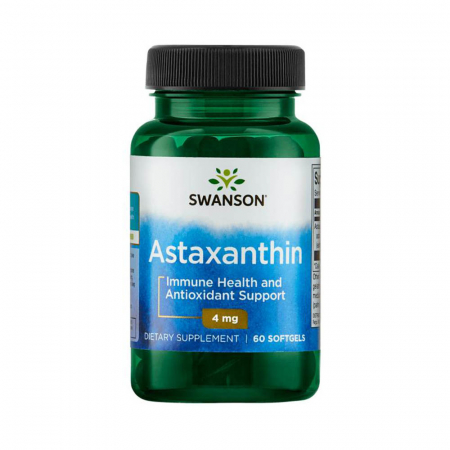Vitamin D
Display: 1-48 from 65 products
FiltersVitamins D3 and K2, 5,000 IU / 100 mcg, Life Extension, 60 capsule
Vegan Vitamin D3, 125 mcg (5000 IU), Life Extension, 60 capsules
Alive! Kids, Premium Gummy Multivitamin, Nature's Way, 90 Gummies
Vitamin D3 Gummies, 25 mcg (1,000 IU), Nordic Naturals, 120 Gummies
Vitamin D - this is a fat-soluble vitamin and a very effective substance that positively influences a number of vital functions in the human body. It is generally also known as calciferol, hormone precursors, because the human body can produce it normally and on its own through sun exposure. People who don't get enough sun can get vitamin D from food or supplements.
We distinguish two forms of vitamin D:
Vitamin D2
Vitamin D2, also known as algocalciferol, is one form of vitamin D that cannot be synthesized by the human body. Vitamin D2 can be obtained from plant sources, and in the form of nutritional supplements is less often used compared to vitamin D3. We find it for example in mushrooms (grown under UV light) or as a substance added to certain foods. Vitamin D2 differs from vitamin D3 in that the human body synthesizes it differently. In hepatocytes, vitamin D2 is hydroxylated in the form of 25 hydroxyvitamin D2, and in the case of vitamin D3 it is up to 35 hydroxyvitamin. The so-called hydroxyvitamins are also known as calcifediol. Calcifediol is the most determining form of vitamin D, as its blood levels can determine the amount of vitamin D that exists in the human body. Most studies have shown that vitamin D2 is less effective at increasing blood calcifediol than vitamin D3.
Vitamin D3
Vitamin D3, also known as cholecalciferol, is among the 24 nutrients needed to maintain health. The primary source of vitamin D3 is its synthesis in the skin under the influence of exposure to the sun's rays, however, for the vast majority of the population this source is insufficient. You can get it from eating fish, but to get the optimal amount you should eat about 4 kg of fish a day. Vitamin D3 is also the most commonly used form of vitamin D.
Vitamin D and its effects
Vitamin D helps absorb calcium and phosphorus from the gut, which has a beneficial effect on muscle and bone health. It helps prevent and treat muscle and bone pain and fights against chronic fatigue and osteoporosis. . In addition, vitamin D also affects the health of the teeth and can prevent various dental problems.
It is also used to treat immune system disorders (asthma, type 1 diabetes, rheumatoid arthritis). People who do not lack vitamin D have a much better immune system, which allows the body to fight against colds, flu or various infections.
Vitamin D has a positive effect on the skin and wounds heal much more easily and is also effective in treating skin conditions such as psoriasis. It is also used preventively in the treatment of various types of cancer (colon, prostate, pancreas or breast cancer).
Vitamin D may help prevent or treat type 2 diabetes, particularly because of its ability to stimulate insulin production in the cells of the pancreas. In addition, it effectively reduces insulin resistance. Recent studies suggest that vitamin D can improve glucose tolerance, not only in diabetics, but also reduce the risk of type I diabetes.
Vitamin D suppresses renin in the human body - a chemical substance normally produced by the human body. This substance helps produce another chemical called angiotensin, which is responsible for maintaining blood pressure. Angiotensin also causes the release of a substance called aldosterone. And this substance is involved in maintaining blood pressure within normal limits. In its entirety, this system is called the renin-angiotensin-aldosterone system (RAAS). If the RAAS system is overactive, it causes high blood pressure, kidney disease, and heart failure. Vitamin D suppresses the RAAS system, so it can prevent high blood pressure or other serious diseases.
Vitamin D is very important for the proper functioning and development of the brain. This vitamin is also used in the prevention and treatment of neurological diseases such as autism, Parkinson's disease and Alzheimer's disease. It is scientifically proven that this vitamin has a positive effect on the central nervous system. Scientists are currently analyzing how important the lack of this vitamin is in the etiology of multiple sclerosis and the neutralization of the toxic effects of lead and other heavy metals.
Vitamin D also has beneficial effects during pregnancy, and its regular use ensures proper fetal development and prevents low birth weight. During breastfeeding, milk production increases. An optimal consumption of vitamin D in childhood and puberty promotes proper body development.
How is vitamin D deficiency manifested?
Back and bone pain
Muscle pain
Fatigue, depression, tired legs syndrome
Weakened immunity, exposure to various viral diseases and colds
Slow wound healing or slower recovery
Hair loss
The possibility of type II diabetes
The appearance of rickets
Sources of vitamin D
The primary source of vitamin D is its synthesis in the skin under the influence of exposure to sunlight. The amount of vitamin D people get is influenced by many factors, including geographic location, use of sunscreen, season, age, or skin pigment.
Vitamin D is found naturally in some foods. Most often found in:
Fish oil
Cocoa butter
Herring
Tone
Cocoa powder
Salmon
Sardines in oil
Egg yolk
Mushrooms
Sour cream
Liver
Butter
Milk
The most popular form of vitamin D is in the form of nutritional supplements. Nutritional supplements provide pure vitamin D or vitamin D in combination with vitamin K. Vitamin D is often supplemented with vitamin K due to their ability to absorb calcium and a positive effect on bone health. Joint dosing enhances the effect of each of the vitamins. At the same time, they also work synergistically because excessive amounts of vitamin D can cause arterial calcification, but vitamin K reduces the risk of arterial calcification. Therefore, vitamin K2 fulfills the role of a "traffic policeman" that controls the absorption of vitamin D and supervises its negative actions.

